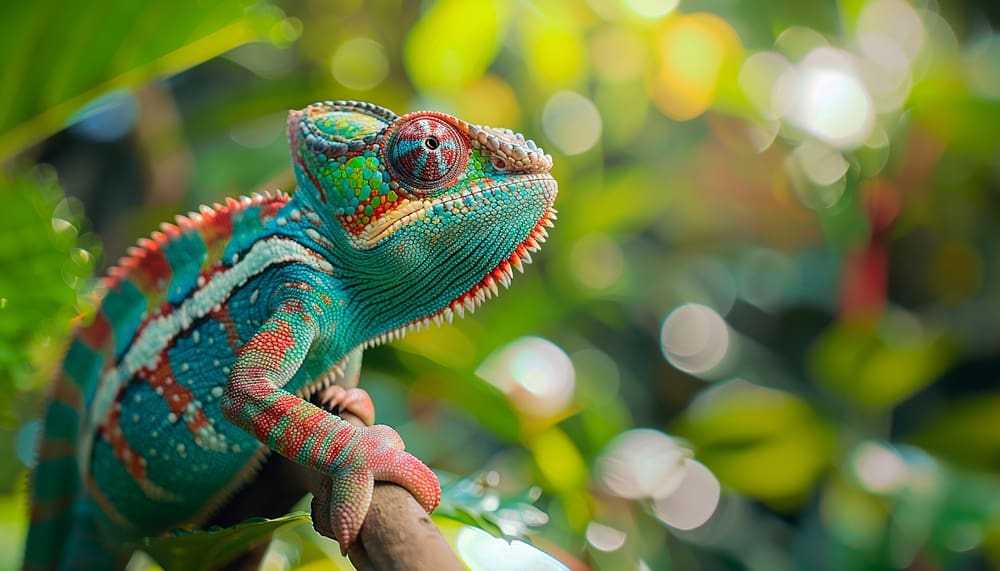
When you are passionate about caring for animals and the conservation of animal species, then it is only natural to want to spend your career working with those wondrous and interesting creatures. Individuals with a specialized interest in reptiles and amphibians may want to learn more about how to become a herpetologist.
What Is a Herpetologist?
So, what is a herpetologist, exactly? Herpetology is defined by Merriam-Webster as a branch of zoology that focuses specifically on reptiles and amphibians. Therefore, a herpetologist is a scientist who studies and specializes in herpetology, often focusing on wildlife conservation and preserving the local habitats of these animals.
According to EnvironmentalScience.org, herpetologists may work for a variety of organizations, including research centers, conservation organizations, museums, and governmental organizations. Herpetologists’ responsibilities depend on their specific roles but often include research, conservation planning, and creating strategies for disease prevention, environmental protection, and species conservation.
What Does a Herpetologist Do?
The job responsibilities of herpetologists jobs will vary based on the individual organization and its purpose, but generally speaking, these are some of the common responsibilities of a herpetologist:
- Herpetologists study the behavior of reptiles and amphibians, focusing on their local environments. They examine species development, genetics, and behavioral changes over time. This work often includes inventorying local populations and identifying ecological issues that could affect their health and survival.
- Cataloging and documenting specimens and samples. Herpetologists often work closely with researchers and museum curators to share specimens and samples for the purpose of conservation and education.
- Teaching courses in herpetology at the collegiate level. Herpetologists may find work at colleges or universities, where they can conduct their research while educating the next generation of zoologists.
- Working at zoos and aquariums to care for the reptiles and amphibians housed there. Per data reported by the Bureau of Labor Statistics (BLS), zoologists and animal caretakers are often responsible for caring for animals, maintaining their zoo environments, providing the animals with enrichment activities, and educating the public about the animals at the zoo. They may also participate in breeding programs or local wildlife management initiatives.
- Conducting fieldwork and environmental impact studies for private institutions focused on wildlife management and animal conservation or for government organizations looking to protect the local reptile and amphibian populations.
How to Become a Herpetologist
After learning more about what a herpetologist does and the impact that they can have on the populations of reptiles and amphibians around the world, you may be interested in learning how to become a herpetologist. Specializing in this branch of zoology requires you to prioritize your education, gain professional experience, and identify your personal career goals.
Fulfill Educational Requirements
The educational requirements for herpetologist jobs may vary based on the position, the job responsibilities, and the hiring organization. However, as an aspiring herpetologist, you can expect to need both a bachelor’s degree and a master’s degree to conduct research in the field of herpetology.
Those interested in the field of herpetology often choose a bachelor’s degree program with a science focus. For example, you may choose to pursue an undergraduate degree in biology, wildlife conservation, or zoology. In general, you will not be required to earn a bachelor’s degree in herpetology, as your undergraduate degree program should focus more on broad scientific knowledge, allowing you to develop the research skills required within scientific fields.
For many herpetologist jobs, you will need a graduate degree. You will want to carefully select a master’s degree in a specialized field, allowing you to gain advanced knowledge of the study of zoology or the field of herpetology. While there are several master’s degree programs in herpetology around the country, you may also want to consider pursuing a master’s degree in ecology, zoology, or biology.
Choose a Specialty Area for Your Career
After you have earned both a bachelor’s degree and a master’s degree, you will want to choose a specialty area to focus on. Most herpetologists choose a specialty area that aligns with their personal interests and passions and that complements their existing educational background.
Once you have decided on a specialty field, you should pursue an internship in zoology or herpetology. An internship program will allow you to gain the critical professional experience required to develop hands-on skills. You should select an internship program that allows you to become proficient in your chosen specialty area.
Build Your Professional Network
One of the best ways to uncover herpetologist jobs near you is to focus on building your professional network. You can begin establishing the foundation for your professional network during your undergraduate studies when you can connect with your instructors, who may be experts in herpetology or wildlife management. From there, you can continue to build your network by pursuing internships, joining industry organizations, attending herpetology or zoology conventions, and participating in field studies in your local area. Through networking, you may find not only job opportunities, but also mentorship programs that you can leverage throughout your science career.
Focus on Skill Development
Knowledge and understanding are the foundation for any career in science, but you will also want to focus on developing the practical, technical, and soft skills required to succeed in the herpetologist jobs available today.
Some of the top skills required of herpetologists include:
- Communication skills – You will need to develop expert written and verbal communication skills to write reports and deliver presentations.
- Organizational skills – You must stay organized as you collect data during your field studies and environmental impact studies.
- Data collection and analysis skills – During your research, you will need to know how to harvest accurate data and analyze it to gain actionable insights about the populations of reptiles and amphibians in your area.
Gain Professional Experience
At the beginning of your career, the professional experience you gain can set the course for your career path in herpetology. You can gain professional experience in the field of herpetology by:
- Participating in research studies with experienced herpetologists. By working on these field studies and environmental impact studies, you will begin to develop an understanding of how you can create your own studies in the future.
- Collaborating with wildlife management professionals and learning about the work they are doing.
Learn How to Become a Herpetologist at Unity Environmental University
If you are interested in the study of reptiles and amphibians and you want to spend your career working with these magnificent creatures, then you may want to consider enrolling in a degree program at Unity Environmental University. We offer a robust and supportive online Bachelor of Science in Wildlife Conservation degree program that can equip you with the knowledge and skills required to begin a career in herpetology. Request more information about our environmental degree programs today.



